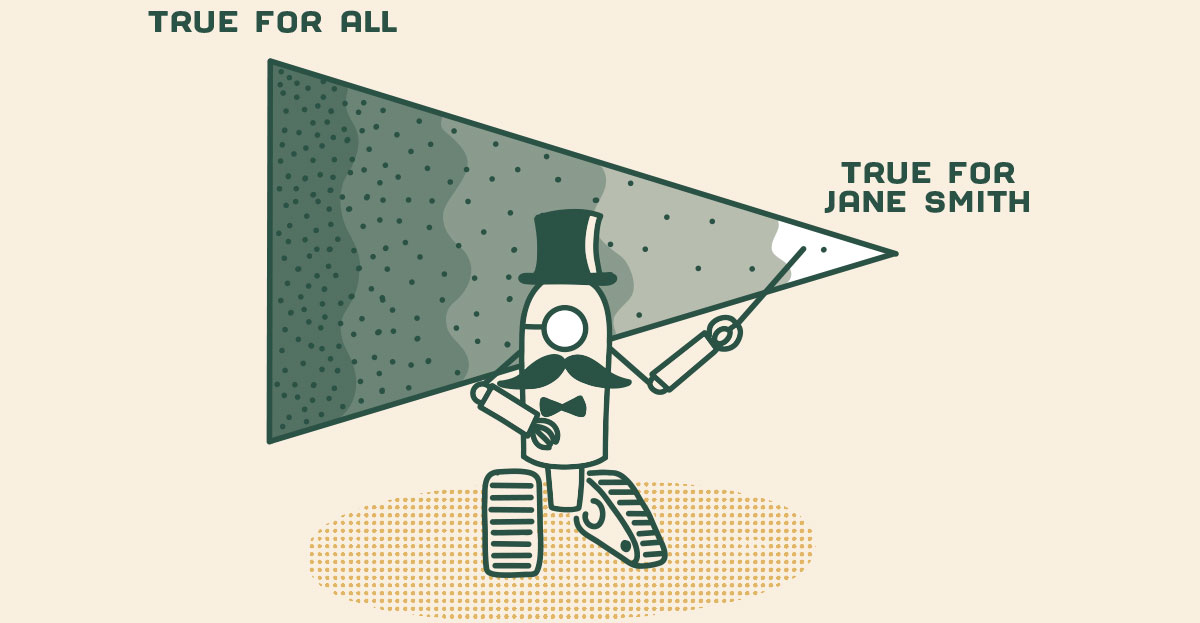
"I don't think it's any mystery why people join," Matt said. Then he began ticking off reasons with his finger, "They join to improve their business network, make friends, see the speakers for Tuesday lunches, and engage in service."
I had just proposed that our Rotary Club membership committee gather data on our members to support future engagement and recruitment.
Matt wasn't wrong. Those are the reasons that people join our club.
However, those answers aren't very useful. The problem is that they're generally true.
Imagine that you're trying to help your newly single friend re-enter the dating world.
You ask her, "What do you look for in a partner?"
She says, "I like tall guys who are interesting."
So you set her up with your 5'10 cousin who lives in his parent's basement.
Your friend isn't happy. "5'10!" She says, "That's not tall. I meant someone who's at least 6'3."
What's tall and why someone is interesting depends on who your friend is.... Specifically.
This pitfall with data that is generally true is something to consider when you go about surveying your members.
It's okay to ask general questions, like, "Rank our Benefits," with a forced ranking. But if your survey is entirely pre-determined choices, you're going to learn things that are generally true, but not that helpful.
"It's odd that what the board recommended was different from what the focus group wanted," one of our clients told me in a meeting. We're in the final stages of development for their website and discovered that the content of several pages needed to be tweaked after a focus group review.
Everyone wants more attention. I've yet to come across a client who didn't say that their website needed, "greater visibility." When I ask clients what greater visibility would do for them, they say that it would help them grow. While this isn't entirely false, pursuing visibility is not a goal that leads to growth. Instead, seeking to understand the reason that people join is what charts the path to expanding membership.
I had beers with a couple of friends last Thursday. One of them just launched a redesign of their business website. His last major obstacle was that he needed to write his "about us" page. Rather than actually write it though, he recorded a short audio file where he talked about his company's history. Then he uploaded it to Otter.ai, a transcription software to convert it to text. He fed the text into Chat GPT and told it to organize it and re-write it with a more professional tone. He tweaked that output and then posted it on his website.
This entire process took him around half an hour and required little skill on his part.
Imagine a member’s entire experience with your organization as a timeline.
At the start of the line, they hear about your association for the first time from a coworker. In the middle, they’re active members, perhaps attending your annual conference. At the end of the line, they mention to a peer that they were a member several years ago.
What is the specific second on that timeline where you can find out the most about what they value?
